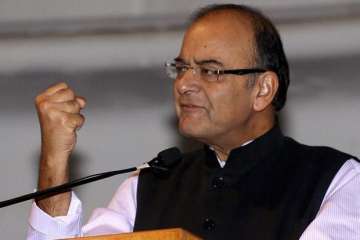Will Budget 2017 heal the gash of demonetisation? Here are 10 things to expect
Finance Minister Arun Jaitley is all set to present the Union Budget 2017, breaking the 92-year-old practice of presenting it on the last working day of February.

Finance Minister Arun Jaitley is all set to present the Union Budget 2017, breaking the 92-year-old practice of presenting it on the last working day of February. Also, it will be the first time when a combined Union and Rail Budget will be announced.
After the Budget is presented in the Lok Sabha, Mr Jaitley will reply to questions by Twitterati on the proposals. "I shall be presenting the Union Budget for 2017-18 today. I shall be happy to respond to your questions which you can send directly to me," he said. The questions can be asked on Twitter by using hashtag #MyQuestionToFM.
Expectations are running high to boost the Indian economy which suffered a blow from the government’s demonetisation move, particularly sectors like agriculture and retail which are largely dependent on cash transactions.
The Economic Survey for 2016-17, tabled in Parliament by Mr Jaitley on Tuesday, pegged India's economic growth at 6.5 per cent for the current fiscal year, down from 7.6 per cent recorded in the last financial year, but added that growth is expected to rebound in the range of 6.75-7.5 per cent in 2017-18.
The Budget is also critical from the point of view that it comes at a time when all 8 states are set to go to polls in February and March.
Here are the top expectations from the Budget 2017:
- After the pain of note ban, the common man will hope for a relaxation in the tax slab structures. Rationalisation of tax structure is also expected keeping in mind the disruption caused by GST.
- As the government pushes India to go for a cashless economy, people will expect rebates on use of digital payments. Meanwhile, mobile wallet companies will want lowering of transactions costs.
- India’s sunshine sector may also get additional tax benefits in the Budget. The Commerce and Industry Ministry has already suggested the Finance Ministry to consider raising tax holiday for startups to 7 years from the current 3 years to encourage budding entrepeneurs.
- The end of a separate Budget will be a relief for the Railways, since its revenue deficit and capital expenditure will now get transferred to the Finance Ministry. A safety fund of Rs 20,000 crore for the Railways which is reeling under a series of deadly derailments could be the top focus. The fund could include development of new lines, station redevelopment and setting up of Rail Development Authority and High Speed Rail Authority.
- A “flexi-fare” scheme on passenger tickets is also likely, although the Finance Ministry is expected to stay away from the risky decision of a direct hike in passenger and freight tariffs.
- Ahead of the GST rollout from July 1, Mr Jaitley may increase the service tax rate to bring it in accordance with the proposed standard rate under the new tax regime. The service tax may be increased from 14 per cent at present to 16-18 per cent.
- On the other hand, banks expect the government to boost consumption demand through personal income tax sops, including higher exemption limit, additional deductions under Section 80C and interest on home loans.
- Curtailment of education fees, cheaper electronic gadgets and more focus on jobs are some of the expectations Young India has from the Budget 2017-18, news agency IANS reported. Boosting the digital economy and ramping up the start-up industry are also few measures likely to be considered.
- The Economic Survey said that the demonetisation, effected in November 2016, could have particularly "profound impact" on the real estate sector. "Real estate you do see a blip in prices, sales and launches and of course some of it may be adverse to the economy but in the long, some of that could be good because aim of demonetisation is to bring down real estate prices," said Chief Economic Advisor Arvind Subramanian.
- Focus will also be on PM Modi's pet projects, such as "Make in India" and "Digital India" among other sectors such as education, healh and housing. "Make in India" has been one of the most ambitious goals of PM Modim which aims at attracting foreign investments and take the nation forward to being a hub for manufacturers.